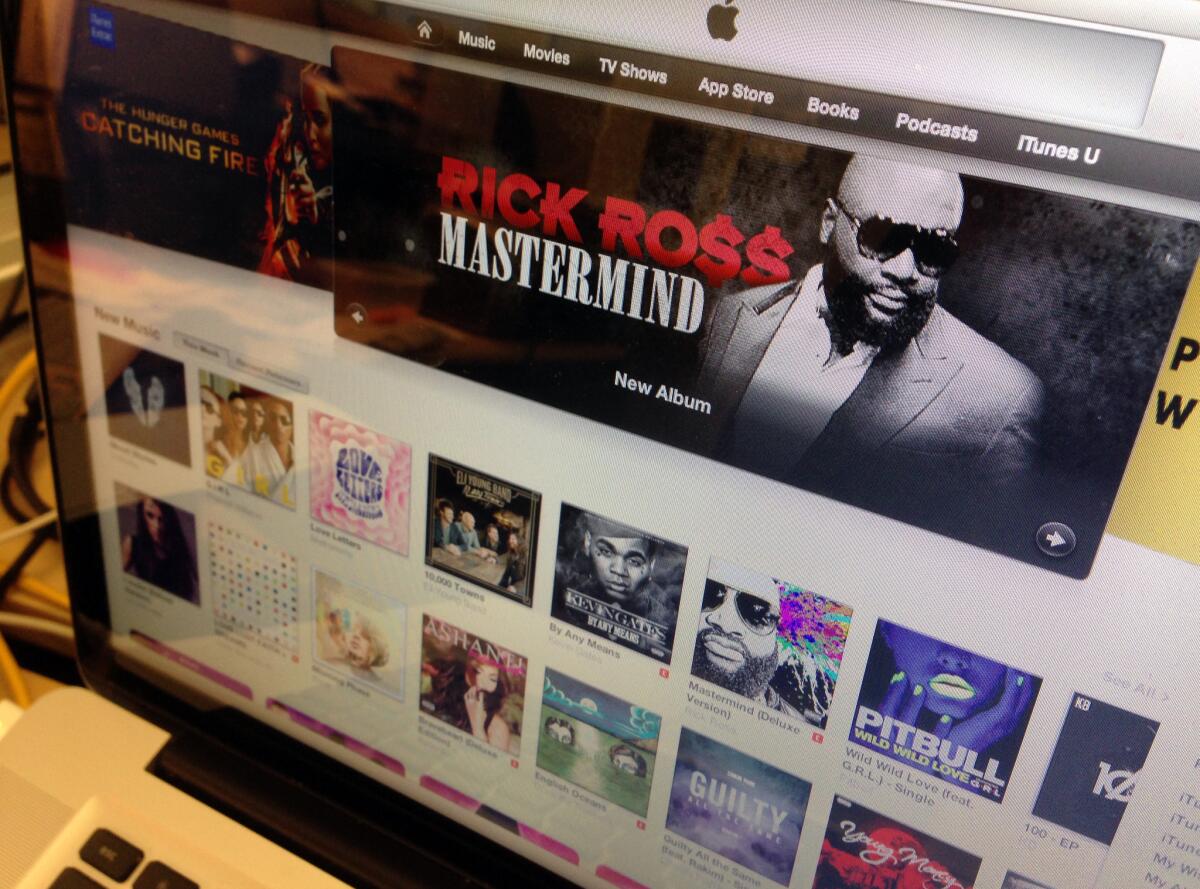Why iTunes, apps and services may be key to Apple’s future

Despite its ecosystem of products, Apple’s business relies heavily on the sales of iPhones. In the third quarter results reported on Tuesday, iPhone sales were 52.7% of revenue.
But what’s the second most important business? That’s harder to answer, and it may shift in the coming quarters thanks to the category Apple calls “iTunes/Software/Services.”
Right now that category is fourth, behind iPads and Mac. But not by much. The company reported revenue of $5.889 billion from iPads and $5.54 billion from Macs.
The iTunes, etc. category brought in $4.485 billion, up 12% from a year ago, and is coming on strong.
“For the first nine months of this fiscal year, the line item that we call iTunes Software and Services has been the fastest growing part of our business,” said Apple chief executive Tim Cook in a conference call with analysts on Tuesday. “iTunes billings grew 25% year-over-year in the June quarter and reached an all-time quarterly high, thanks to the very strong results from the App Store.”
That’s remarkable for a number of reasons. First, it is happening despite the fact that the broader market for digitally downloaded music is in a steep decline.
Apple has caught a lot of flak for not moving more aggressively into this market to compete against Spotify and Pandora. The iTunes Radio service launched last year hasn’t been a big hit with consumers. And earlier this year, Apple said it would pay $3 billion for Beats in part because of its streaming music service.
For the moment, though, iTunes seems to be holding up just fine.
But second, the notion that iTunes sales, apps and services could eclipse products like the Mac or the iPad reflects how the business of hardware and software are changing.
Companies like Amazon, which has just started selling its first smartphone, and Google, which makes the Android operating system, also want to sue their content deals to entice customers to buy their gadgets. Yet Apple seems to be more than holding its own against them for now.
These companies, as well as Microsoft, need to attract developers to help their products stand apart. Despite the fact that Android commands a bigger marketshare, Apple still appears to hold the financial advantage when it comes to developers.
“App Store momentum remains very strong, and cumulative app downloads have topped 75 billion,” said Apple chief financial officer Luca Maestri, on the analyst call. “We continue to be amazed by our vibrant and diverse development community and we’re extremely proud that our developers have now earned over $20 billion from sales of their apps through the App Store, nearly half of which have been earned in the past 12 months. “
Of course, Apple has fans in a frenzy with rumors that it might start selling a bigger iPhone this year. Or, at long last the iWatch. But competitors like Samsung Electronics and many others already have bigger smartphones and smartwatches on the market.
It may be the software and services that continues to help Apple stand apart as it becomes harder to truly differentiate the hardware. And from the looks of things, that may be the hardest part of the Apple ecosystem for its competitors to match.
Follow me on Twitter @obrien.







